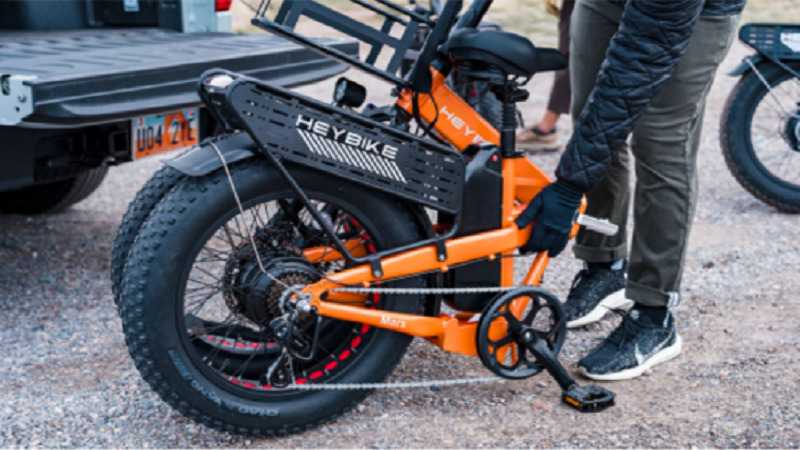The modern urban landscape faces challenges unlike any other time in history. Population density, growing traffic congestion, environmental concerns, and rising fuel costs have forced societies to rethink transportation. Public transit systems remain vital, but they are not always accessible or convenient for short, frequent trips.
Traditional bicycles offer a sustainable option but can be limited by distance, effort, and storage constraints. This is where eBikes—electric bicycles—emerge as a transformative solution, bridging the gap between conventional cycling and motorized transport. They embody the essence of micro-mobility: compact, efficient, and tailored for short to medium-range travel needs.
The rise of eBikes signals more than just a technological trend. It represents a cultural shift in how people perceive commuting and local transportation. Instead of relying solely on cars for every journey, individuals are discovering that smaller, smarter alternatives provide greater freedom.
By integrating digital technology, energy efficiency, and user-friendly design, eBikes redefine how people move within their communities. Their versatility extends beyond commuting to recreation, delivery services, and even last-mile logistics.
Folding Ebikes and Their Expanding Role in Urban Living
Among the many variations of electric bicycles, folding eBikes have earned special recognition. These compact machines are designed to collapse into portable forms, making them exceptionally practical for modern living. Urban residents often struggle with limited storage space, restricted parking, and the inconvenience of carrying larger bicycles onto trains or buses. Folding eBikes by HeyBike resolve these issues seamlessly, combining portability with electric assistance that reduces the physical strain of cycling.
The benefit of electric folding bike models is their unmatched adaptability. Riders can fold them up for easy storage in apartments, offices, or public transit systems, while still enjoying the efficiency and reduced commuting times provided by electric assistance.
This versatility makes them an ideal solution for individuals who require transportation that fits into complex daily routines. Many riders appreciate how these bikes bridge the gap between personal mobility and public transportation, enabling multi-modal travel that saves both time and energy.
Environmental Advantages Driving the Shift
A central reason eBikes stand at the forefront of micro-mobility is their environmental impact. Unlike cars, which contribute heavily to greenhouse gas emissions and air pollution, eBikes operate with a minimal ecological footprint. They consume far less energy than automobiles or motorcycles, and when charged through renewable energy sources, their carbon impact becomes negligible.
Cost Efficiency and Accessibility
Affordability plays a significant role in the appeal of eBikes. Owning and maintaining a car involves substantial expenses: fuel, insurance, repairs, and parking fees. Even public transportation costs can accumulate over time. In contrast, eBikes offer an economical alternative with low operating expenses. A single battery charge typically costs only a fraction of what is spent on fuel for traditional vehicles. Maintenance is relatively simple, and replacement parts are more accessible than automotive repairs.
This cost efficiency makes eBikes accessible to a wider demographic, including students, young professionals, and individuals seeking budget-friendly commuting solutions.
Health and Lifestyle Benefits
While eBikes provide motor assistance, they do not eliminate the physical benefits of cycling. Riders can choose the level of assistance they receive, blending exercise with convenience. For many, this hybrid approach makes cycling more approachable, especially for those with physical limitations or those who wish to avoid excessive strain during long commutes. It encourages regular movement, cardiovascular activity, and outdoor engagement without the exhaustion often associated with traditional bicycles.
Technological Integration and Smart Features
Modern eBikes are far more than just bicycles with motors. They incorporate advanced technologies that enhance the riding experience. Features such as integrated GPS, app connectivity, theft-prevention systems, and regenerative braking systems make eBikes intelligent companions rather than simple vehicles.
Transforming Last-Mile Delivery and Commercial Use
The utility of eBikes extends beyond personal commuting. They have gained traction in commercial applications, particularly in last-mile delivery services. Businesses are leveraging the efficiency of eBikes to navigate congested urban areas where larger vehicles face delays. Couriers can complete deliveries faster, reduce fuel costs, and minimize environmental impact.
Policy Support and Infrastructure Development
For eBikes to fully realize their potential, supportive infrastructure and policies are essential. Governments and municipalities worldwide are beginning to recognize this need. Investments in bike lanes, charging stations, and shared mobility programs encourage adoption and make riding safer and more convenient.
Cultural Shifts and the Future of Micro-Mobility
Perhaps the most profound impact of eBikes lies in their ability to reshape cultural attitudes toward mobility. Owning a car has long been considered a symbol of independence, but that perception is evolving. Today, freedom is increasingly defined by flexibility, affordability, and sustainability. EBikes encapsulate these values, offering independence without the burdens of car ownership.
The popularity of shared eBike programs also reflects this cultural change. Instead of committing to personal ownership, many individuals embrace shared mobility, reflecting a broader shift toward resource efficiency and collective solutions. This trend aligns with global priorities of sustainability and minimalism, suggesting that micro-mobility will continue to grow in importance.
E-bikes represent more than just a technological advancement; they embody a holistic reimagining of mobility. By combining environmental benefits, cost efficiency, lifestyle adaptability, and technological innovation, they provide solutions to challenges that cars and traditional bicycles cannot fully address.

